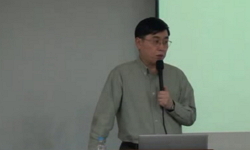2023년 여름, 대한민국에서는 헌법기관인 중앙선거관리원회와 감사원을 비롯한 법률기관인 국민권익위원회 및 방송통신위원회 등 독립행정기관에 대한 관심이 그 어느 때보다 뜨거웠다. 이 ...
http://chineseinput.net/에서 pinyin(병음)방식으로 중국어를 변환할 수 있습니다.
변환된 중국어를 복사하여 사용하시면 됩니다.
- 中文 을 입력하시려면 zhongwen을 입력하시고 space를누르시면됩니다.
- 北京 을 입력하시려면 beijing을 입력하시고 space를 누르시면 됩니다.

국민권익위원회의 독립성과 정치적 중립성 = Independence and political neutrality of the Anti-Corruption and Civil Rights Commission
한글로보기부가정보
국문 초록 (Abstract)
2023년 여름, 대한민국에서는 헌법기관인 중앙선거관리원회와 감사원을 비롯한 법률기관인 국민권익위원회 및 방송통신위원회 등 독립행정기관에 대한 관심이 그 어느 때보다 뜨거웠다. 이 중 국민권익위원회는 불합리한 행정으로 인한 국민의 권익침해를 신속하게 해결하고 부패행위를 효과적으로 예방하기 위한 목적으로 「부패방지 및 국민권익위원회의 설치와 운영에 관한 법률」(이하 ‘부패방지권익위법’이라 함)에 따라 국민고충처리위원회(고충처리), 국가청렴위원회(부패 방지), 국무총리행정심판위원회(행정심판)의 3개 기관을 통합하여 2008년 2월 29일 출범한 국무총리 소속 독립행정기관이다.
국민권익위원회는 행정심판과 관련한 재결 기능은 준사법적(準司法的) 성격이 있을 뿐만 아니라 고충 민원과 부패 방지에 관한 업무 역시 본질상 행정권을 감시하고 견제하는 기능을 수행하기 때문에, 그리고 이러한 권익에는 여러 사람이 관여되므로 업무의 공정성을 요한다. 또한 무엇보다도 위계질서 속의 조직인 행정부 내에서 구제 기능이 수행되므로 상위 기관이나 다른 국가기관들의 압력을 받지 않아야 한다는 점에서는 독립성이 요구된다. 그러나 현실에서 국민권익위원회의 독립성이 보장 여부는 논란이 되고 있다. 그리고 이러한 논란의 대부분은 기능적 통합을 이룰 수 없는 기관 간의 통합에서 비롯된 태생적 한계로 보여진다. 이러한 태생적 한계를 극복하고 국민권익위원회의 지위나 기능을 검토했을 때 가장 바람직한 형태는 기능별 분리가 이루어지고 현재의 부패 방지 기능에 중점을 둔, 독립성을 지닌 부패 전담 기구로서의 국민권익위원회이다.
정부의 조직 개편은 정부의 조직구조에 의식적인 변화를 가하는 것이다. 이러한 정부 조직 개편에서는 제도의 목적과 절차, 조직, 운영, 상호보완성 등 제반 사정이 종합적으로 고려되어야 하며, 미래지향적 과제 수행을 위한 적합한 조직 형태로 설계되어야 한다. 이를 전제로 한 개편이야말로 해당 기관에 요구되는 독립성을 보장하는 길이라 생각된다.
다국어 초록 (Multilingual Abstract)
In the summer of 2023, interest in independent administrative agencies such as the National Election Commission and the Board of Audit and Inspection, as well as legal agencies such as the Anti-Corruption and Civil Rights Commission and the Korea Comm...
In the summer of 2023, interest in independent administrative agencies such as the National Election Commission and the Board of Audit and Inspection, as well as legal agencies such as the Anti-Corruption and Civil Rights Commission and the Korea Communications Commission, was hotter than ever in Korea. The Anti-Corruption and Civil Rights Commission is an independent administrative agency under the Act on the Establishment and Operation of Anti-Corruption and Civil Rights Commission (hereinafter referred to as the Anti-Corruption and Civil Rights Commission Act) launched on February 29, 2008 by integrating three organizations: the National Complaint Handling Commission, the National Integrity Commission, and the Prime Minister's Administrative Appeals Commission.
The Anti-Corruption and Civil Rights Commission requires fairness in its work because it not only has a quasi-judicial nature for the ruling function related to administrative trials, but also monitors and checks administrative power for grievance complaints and prevention of corruption. In addition, independence is required in that the relief function is carried out within the administration, which is an organization in the hierarchy, so it should not be pressured by higher institutions or other state agencies. When overcoming these inherent limitations and reviewing the status and functions of the Anti-Corruption and Civil Rights Commission, the most desirable form is the Anti- Corruption and Civil Rights Commission as an independent organization dedicated to corruption that is separated by function and focuses on the current anti-corruption function.
In reality, however, whether the Anti-Corruption and Civil Rights Commission's independence is guaranteed is controversial. And most of these controversies are seen as inherent limitations stemming from the integration between institutions that cannot achieve functional integration. The reorganization of the government is to make conscious changes to the government's organizational structure. In such a government reorganization, various circumstances such as the purpose and procedure of the system, organization, operation, and complementarity should be comprehensively considered, and it should be designed as an appropriate organizational form for performing future-oriented tasks. I think the reorganization on the premise of this is the way to ensure the independence required by the institution.
동일학술지(권/호) 다른 논문
-
- 유럽헌법학회
- 홍일선
- 2023
- KCI등재
-
- 유럽헌법학회
- 김용훈
- 2023
- KCI등재
-
무력충돌시 문화재 파괴 행위에 대한 국제형사책임의 과제
- 유럽헌법학회
- 권남희
- 2023
- KCI등재
-
(미등록) 외국인 아동의 출생등록권의 헌법적 보장과 그 실현을 위한 입법적 과제
- 유럽헌법학회
- 공진성
- 2023
- KCI등재




 KCI
KCI 스콜라
스콜라





